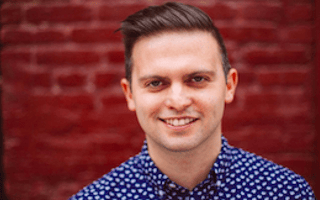 We all know the feeling of miraculously remembering every lyric to an old hit song, or suddenly having the chorus to a Christmas tune you listen to once a year stuck in your head for days on end. This is because, when it comes to music and our brains, information set to music is easy to remember.
We all know the feeling of miraculously remembering every lyric to an old hit song, or suddenly having the chorus to a Christmas tune you listen to once a year stuck in your head for days on end. This is because, when it comes to music and our brains, information set to music is easy to remember.
This is the foundation on which Brooklyn-based company Flocabularly was born.
The company is a web-based learning program for K-12 students that utilizes educational hip-hop to engage students. Alex Rappaport and Blake Harrison launched Flocabulary in 2003 after the pair decided to create a company that uses rap songs to teach students SAT vocabulary. Though both Rappaport and Harrison were living in San Francisco at the time, they decided to move the company to New York City to authentically tie the company’s culture into the birthplace of hip hop.
The company originally produced word books and audio CDs, as opposed to a fully digital curriculum. In 2011, around the time that notable companies like Netflix and the New York Times were switching from analog to digital models, Flocabularly decided to launch a comprehensive, web-based product.
“One of the biggest changes we made to our product was that moment when we decided that we had heard enough market feedback and that the market was ready for a full, digital experience,” said Rappaport. “We launched a full website in 2011 that took all content we ever produced and put it into a subscription model.”
Today, with over 800 music videos with curriculum and technology to support it, the company makes money by selling its product as a subscription to public schools. Their products are currently used in over 6,000 schools nationwide. Last year, Flocabularly earned $5.6 million in annual revenue, a huge milestone after 12 years of bootstrapping.
“The danger of flooding a business with capital too early, especially with a product that is not super-well defined, is that investors tend to bring certain metrics to the table and certain expectations about those metrics,” said Rappaport. “A company can really be pushed to get to market more quickly than they should, or try to prioritize things that overshadow aspects of the product. We were always a mission-driven organization, in the sense that we want to connect to students that need the most help, so we needed to make sure that our business model supported reaching kids in a demographic where there aren’t necessarily parents investing a lot in education or have the disposable income to do that...I’m grateful that we had a lot of years to figure out the K-12 market and what the product should be.”
Flocabulary raised its first institutional funding round of $1.5 million in the spring of 2016, which it plans on using to scale the business. The company is currently based in DUMBO and counts over 50 full-time employees.
“The investor community in New York City is great. The city in itself is an incubator for edtech and it also pushes you," Rappaport said. "I remember finding the energy of the city contagious as an entrepreneur. You can’t slow down. And of course it’s draining and exhausting but it’s the kind of energy you need to keep building.”
As students begin to use the program more at home, the company is planning on launching a mobile app aimed at parents. They also plan on building upon its existing feature, Lyric Lab, which allows students to apply what they’ve learned from Flocabularly videos into their own songwriting.
“We’ve seen amazing results from students, not just in terms of mastering content knowledge, but the creativity that comes out,” said Rappaport. “Most recently, we saw students in Standing Rock in North Dakota use the Lyric Lab. I think the next frontier for us is around student voice and creativity. I feel like we’re just getting started as an organization. So far we’ve only seen the tip of iceberg in terms of education.”
Know of a company that deserves coverage? Let us know or tweet us @builtinnewyork.






